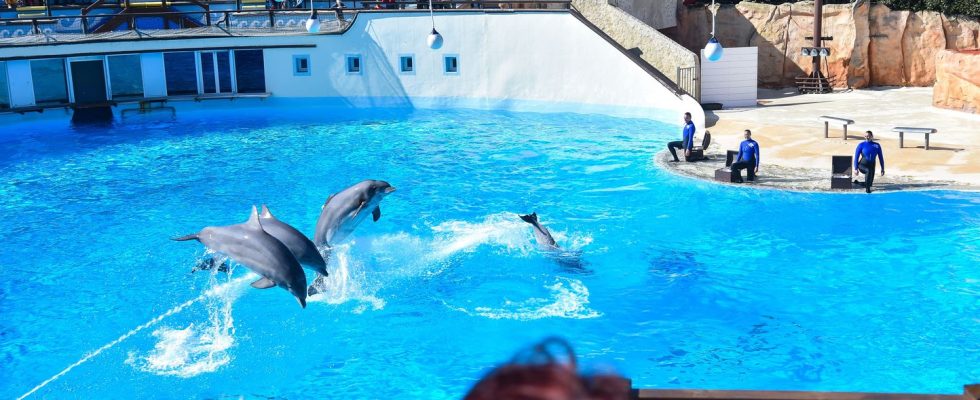This Thursday, the Marineland park in Antibes announced the death of Inouk, a 25-year-old male orca. A death which occurs only five months after that of his son, Moana, 12 years old, also born in captivity in the pools of this park on the Côte d’Azur.
Barely a few minutes after the park’s announcement, the One Voice association, which has denounced the living conditions of these orcas for more than five years, published a press release indicating that she was filing a complaint against the marine zoo and that she would do “everything to make the dolphinarium answer for its actions”. “There is now urgency for Wiki and Keijo [les deux dernières orques du parc] to get them out of Marineland,” she wrote.
This announcement therefore once again relaunches the debate: Until when will we see orcas and dolphins in captivity in France?
Which structures are affected?
In France, three structures were concerned by the detention and offering of cetacean shows: Marineland in Antibes, Planète Sauvage in Port-Saint-Père, near Nantes, and Parc Astérix, in Plailly, in Oise.
In 2021, before the start of debates on the law against animal abuse, the general director of the last structure, Nicolas Kremer, decided to close its dolphinarium, created in 1989, and to send its eight dolphins and five sea lions to other other places in Europe. He confided at the time at the Parisian that it was also not the vocation of this amusement park unlike the others, for whom, “having animals is in their DNA”. Instead of dolphin shows, Parc Astérix now offers a “diving show” with “Greeks and Romans, played by professional athletes” who compete in “an acrobatics duel”.
There are therefore only two water parks left in France, which until recently had twenty-one dolphins and four orcas.
The law against animal abuse prohibits the detention of cetaceans in captivity…
In 2017, a decree was issued by Ségolène Royal, then Minister of Ecology, to ban the reproduction of dolphins in captivity, in order to put an end to dolphinaria. Ultimately, the Council of State overturned this decision.
Four years later, this measure was taken up by Barbara Pompili, Minister of Ecological Transition at the time, to be introduced into the law against animal abuse. The latter was voted on in November 2021 and prohibits “shows including the participation of cetacean specimens and direct contact between cetaceans and the public”. A ban which comes into force from December 2026. The law also indicates that it is prohibited to “hold in captivity or breed in captivity specimens of cetaceans”.
… except for exceptions which confirm the rule?
If Marineland has decided to transfer these (last two) orcas by 2026 within the framework of this law, this is not the case for the dolphins of Planète Sauvage. And this structure has “the right”. Indeed, the same article of law cited above specifies that establishments which present “scientific programs” are not affected by this ban on detention. Same clarification for shows: it is prohibited except when they are “educational demonstrations”.
Thus, while awaiting possible decrees to clarify this situation criticized by animal protection associations, Planète Sauvage continues its activities.
Questioned after the birth, at the end of 2022, of two baby dolphins, Martin Böye, the scientific director, assured: “There is a need to intensify our scientific work to stem the loss of biodiversity experienced by dolphins at sea.” The end dolphins in captivity should therefore not be for the immediate future.

